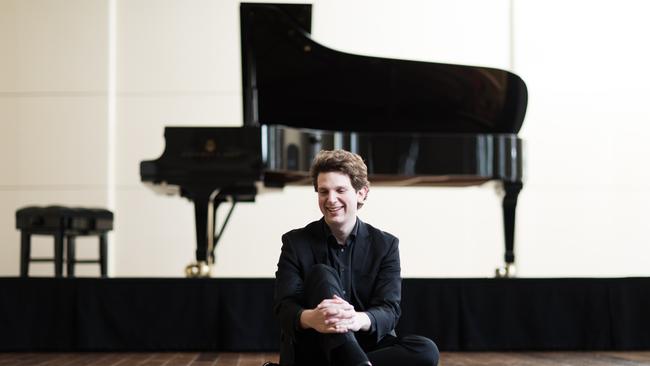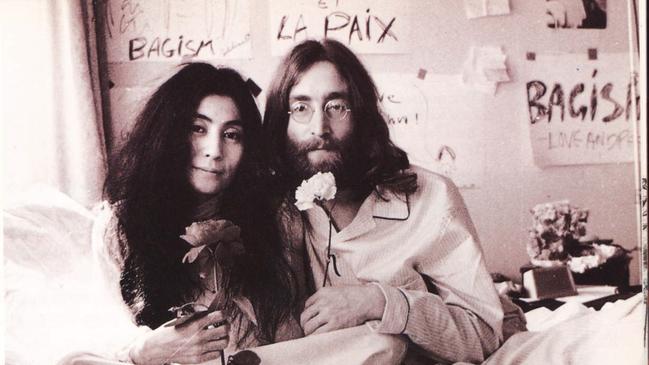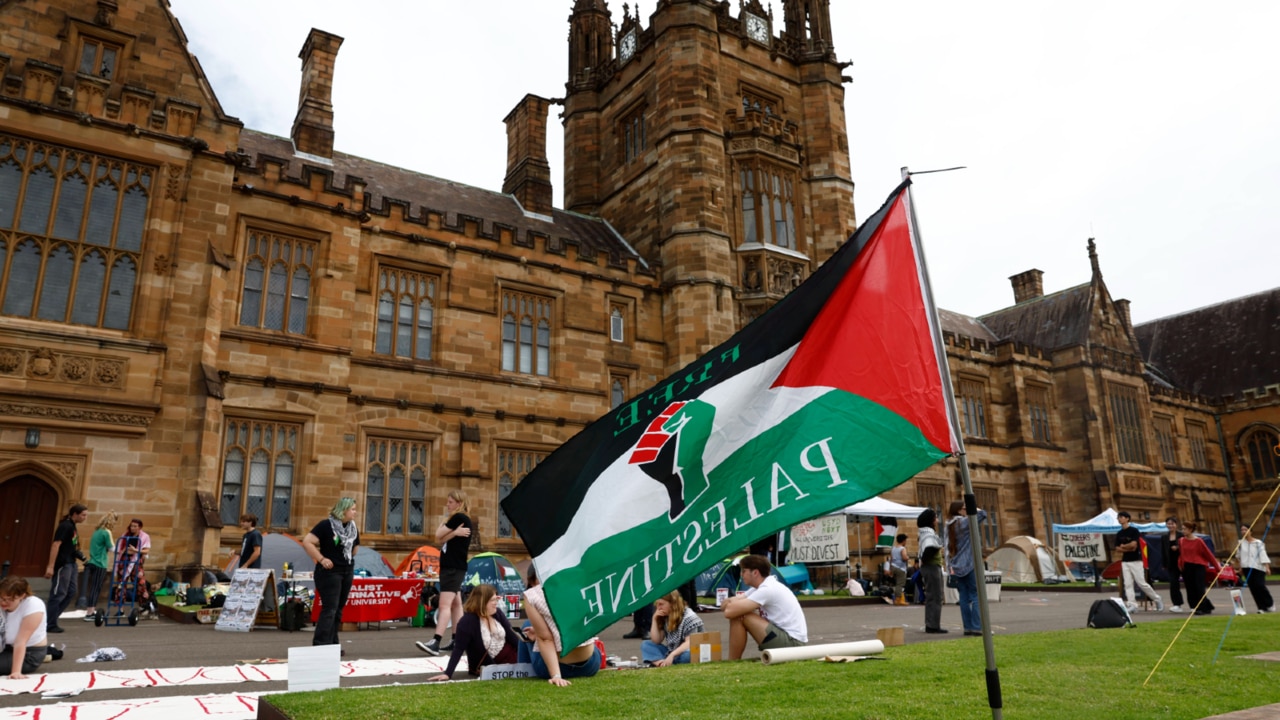Melbourne Symphony Orchestra backflip a case of modern activism meets tradition

Musicians who make political stands are a regular part of the modern era. John Lennon and Yoko Ono’s “bed-in” is the most celebrated example of peace activism because it was entirely consistent with who they were.
At their own expense – and in their own kooky way – Lennon and Ono expressed their “make love, not war” sentiments by posing as two naked bodies entwined on a Hilton Hotel bed in Amsterdam in 1969 and invited the press to film and interview them.
They repeated the process in Montreal the same year, recording Lennon’s anti-war song, Give Peace a Chance, which would become something of an anthem for decades.
At the same time a phalanx of folk singers, including Pete Seeger, Bob Dylan, Phil Ochs, Joan Baez and Donovan, aimed their musical talents at the establishment, accusing it of racism, colonialism and militarism. A whole generation avidly bought their albums and attended their concerts, hoping to hear more from their beloved prophets of protest. In other words, one whole genre of the pop music scene became politicised because that is exactly what a section of the populace wanted at the time.
The classical music world is a very different, one might even say rarefied, situation, and unlike the pop scene it is generally harmed by bringing politics on to the stage, as Jayson Gillham recently did at the Melbourne Symphony Orchestra. Partly it is a matter of the audiences who attend classical music concerts, many of whom support classical musicians as generous patrons, and by way of competitions and prizes that keep this notoriously demanding and financially tenuous profession afloat.

But more than that, these privileged musicians are entrusted with a repertoire of music that has been handed down for generations, centuries in fact, for the one purpose of presenting it to devoted audiences who wish to hear it played to the highest standard.
In a sense, classical music offers an increasingly rare opportunity to find momentary peace in a conflict-laden world. But occasionally new compositions, such as the one by Connor D’Netto, which was dedicated to the journalists killed in Gaza, can break that spell and force one to reflect on the tragedy of war. Agreeing to play the new work is entirely acceptable, but it is a political choice as much as it is a musical one, and the consequences will inevitably bear out.
Gillham’s mistake, however, was to turn the stage into a political soapbox of misinformation about the conduct of the IDF, wrongly alleging that it targeted foreign journalists. The brilliant musicianship of Gillham is not in question, but no one regards him, or D’Netto for that matter, as an expert on the Hamas-Israel war. It is most unfortunate that Gillham placed himself in a position to be judged on a matter he could have avoided.
In the event that he did not, the MSO’s initial decision to withdraw Gillham from the program was presumably for the sound reasons that also belatedly moved the Sydney Theatre Company to ensure the debacle of last November, when three actors took to the stage wearing keffiyehs in solidarity with Gaza, did not reoccur.
While it was first and foremost the financial fallout of that stunt that moved the STC to make the policy change forbidding actors to use the stage to make political stands, it also forced it to rethink the ethical relationship between artists and audience.
While actors and musicians are free to contribute to political debate in the public square, they are not free to exploit a “captive audience”, who have paid to see them perform a specific role but find themselves on the receiving end of an unexpected and unwanted political diatribe.
The MSO, like other institutions that rely heavily on subscriptions and audience numbers, will suffer the consequences from such unexpected posturing of their performers.

Yet it is easily avoided by being crystal clear in their performance contracts, specifying exactly what is expected from them and what is not permitted. Freedom of speech, in which any individual may engage in their own time, is curtailed in most areas of employment where professional codes of conduct prevail and where violations normally result in penalties or dismissal.
The MSO’s decision to reinstate Gillham after the symphony orchestra protested his removal from the program is a classic case of contract confusion and managerial weakness, which unfortunately we are witnessing across other venues, such as public companies whose employees refuse to serve Jewish customers, and universities, where academic principles of truth in scholarship have given way to the vagaries of “free speech”.
The truth about the Hamas-Israel war, which came to the world’s attention on October 7, when Hamas attacked Israeli citizens in their homes and at the Supernova music festival in the early hours of the morning, leaving hundreds dead in a brutal massacre, is that it will take a long time and a great deal of political will to establish a modicum of peace.
At a retrospective exhibition at MoMA, Yoko Ono reflected on what she and John Lennon had done all those years ago, and admitted they were naive to think their stunts could bring about world peace. She realised “things take time” and in that the ageing Ono accepted the truth about history, that change takes time, “more than we thought then”.
Dr Rachael Kohn AO is an award-winning producer and broadcaster. She was presenter of The Spirit of Things and The Ark on ABC Radio National, and is the author of four books.



